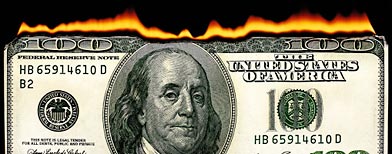You can almost hear the collective slaps to the head.
This recession has brought to light dumb money management practices, forcing just about all of us to confront our financial foibles.
Maybe, for instance, you're one of the ones who panicked and sold during the market bottom. Or, you believed housing prices were guaranteed to rise.
The federal government is tapping behavioral economists -- experts on why we humans make the money judgments we do -- to help devise regulations so that people don't take on unaffordable mortgages and to help them understand their actual credit card fees.
But these efforts just scratch the surface. Here are four common mistakes that surfaced during this economic turmoil, and fixes that we can put in place to prevent ourselves from making the same costly error again:
Regret 1: I didn't have emergency reserves.
Outsmart yourself: When we're confident about our security, stashing cash can seem like a waste. We'd prefer to put the dollars into a "better" use, whether it be sprucing up our home or going on vacation.
Last year, when the unemployment rate started soaring, so did the savings rate of suddenly scared Americans.
If you were one of those scrambling to build emergency reserves, you may abandon the practice once your fear subsides -- setting yourself up for another panic at the next sign of trouble.
So prevent yourself from slipping out of the savings habit by establishing an automatic withdrawal from your checking to a liquid savings. Moreover, if you instruct the bank to sweep a certain sum into a short-term CD when your balance reaches a prescribed level, you won't be tempted to raid the emergency stash.
"The idea is to create a mechanism that will force a habit," says Dan Ariely, a Duke University behavioral economist and author of "Predictably Irrational: The Hidden Forces That Shape Our Decisions."
If disaster does strike, there may be a small penalty to cash in a CD, but at least there'll be money to tap, says Ariely. Not all banking institutions may agree to automatically set up a short-term CD, however, so you might have to direct yourself periodically by putting the task on your calendar as a "must do."





No comments:
Post a Comment